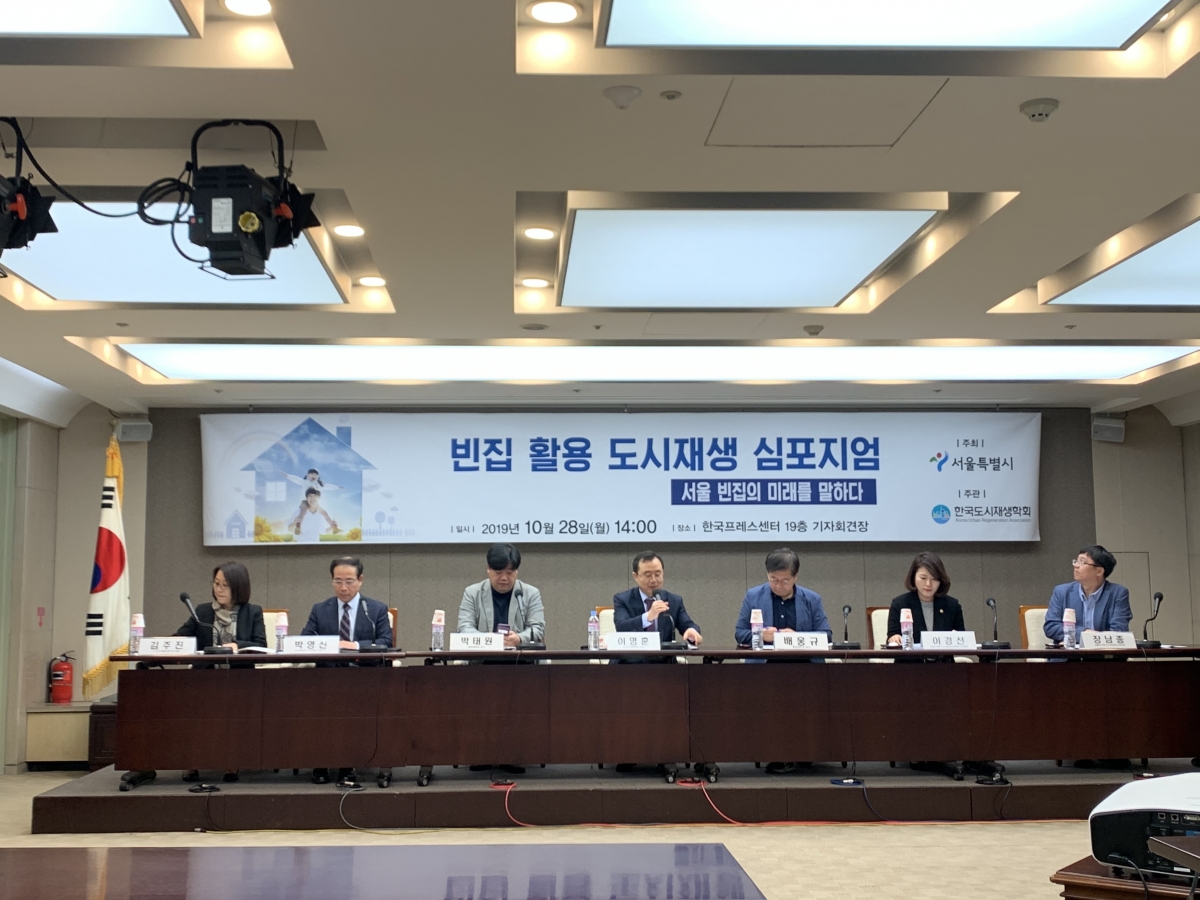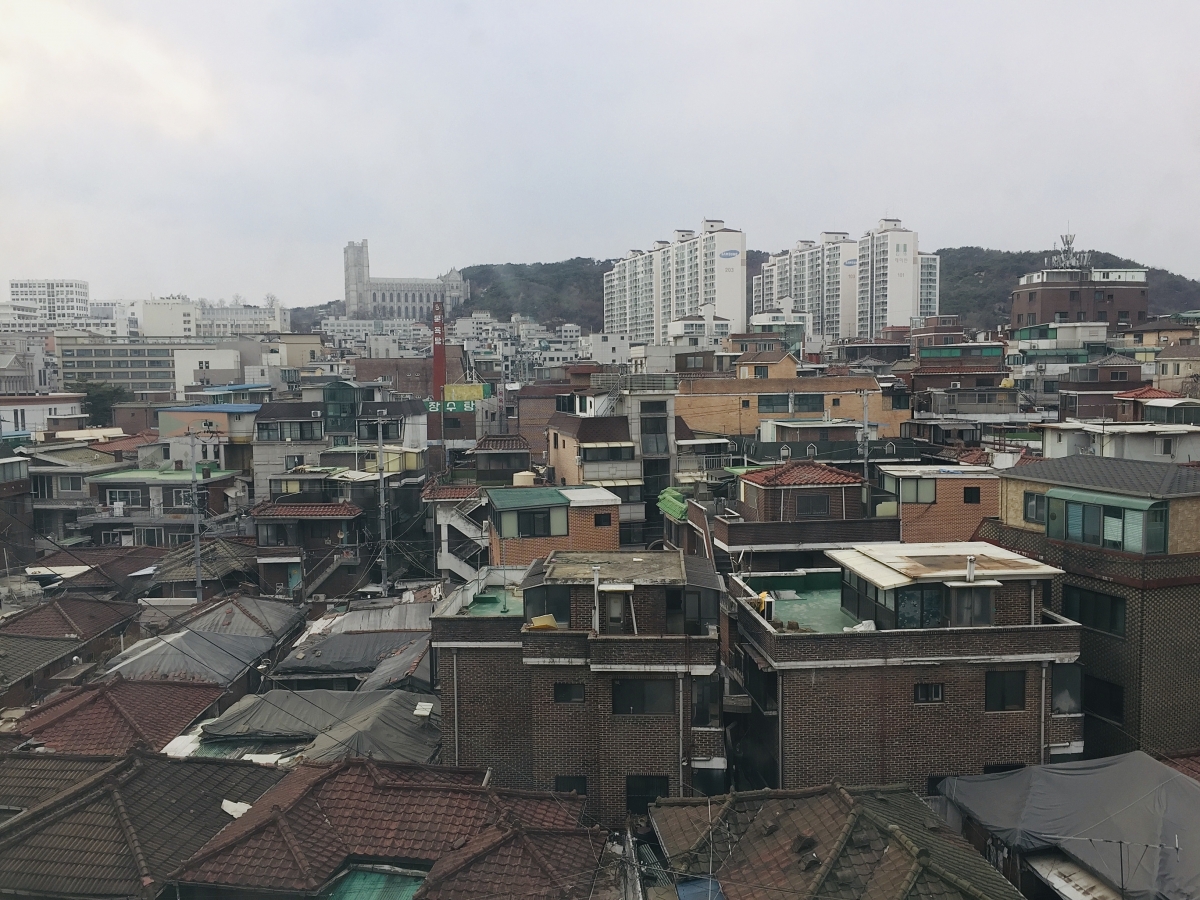The Seoul Metropolitan Government is working hard to put the rapidly increasing numbers of vacant homes to good use, coordinating its efforts through policy and institutional foundations. At the beginning of this year, it founded the Department of Vacant Homes under the Seoul Housing & Communities Corporation, which oversees the project, and more recently it set out an overarching database of these homes, as a ‘bank for empty houses’. On 28 October, a symposium on urban renewal and the use of unoccupied homes became a part of these efforts to publicise the programme’s achievements thus far and to benchmark case studies from abroad.
The symposium’s first speaker was Nam Junghyun, the Head of Seoul’s Residential Environment Improvement Division, who pointed to new towns and the designation and subsequent cancellation of areas for redevelopment as the cause of vacancies. He noted the regrettable effects of erratic housing policies with regards the abandonment of homes and argued for the need for capitalization of such real estate possibilities as social overhead capital for newlyweds and young people, presenting real life examples for the latter. Lee Soyoung, the director of the Residential Redevelopment Division in the Ministry of Land, Infrastructure and Transport, elaborated on the shortcomings of current policies for empty home management. For owners of uninhabited houses, there is a general lack of financial incentives such as additional subsidies or tax deductions to tear down said buildings, and even where there is interest on the part of the public sector to buy such abandoned homes, there is no legal ground for expropriation or the right or claim to sell. As a solution to these problems, she mentioned a dual-track strategy of coordinating urban renewal projects with vacant real estate management projects, and promoted the use of the aforementioned empty house bank database.
Lee Jaewoo, a Professor at Mokwon University, presented a case study from Britain, considering appropriate means of dealing with empty housing. British municipalities have the power to levy heavier taxes for vacant homes, allowing for greater flexibility in the management and redevelopment of such buildings. He added that laws such as the Empty Dwelling Management Orders(EDMOs) offered plenty of policy room for public engagement on issues of private property. Nam Jihyun, a researcher at the Gyeonggi Research Institute, compared Korea’s problem and policy responses with those of Japan’s, wherein a bottom-up approach of local governments collecting relevant data from on the ground and the central government responding at the policy and institutional level is in place.
In the debate that followed, Bae Woongkyoo, Professor of Chungang University, problematised the way in which public funds are used to buy vacant homes under the present status quo, and suggested an alternative, wherein empty houses could be donated as public assets and dealt with in conjunction with the Small-scale Housing Improvement Act. Park Taewon, Professor at Kwangwoon University, advocated a more extensive taxonomy of these vacancies as per their causes and a correspondingly varied policy response. He also proposed the need to include commercial buildings under this classification, for which the term ‘empty space’ may be more appropriate. <by Kim Yeram>

View of symposium ‘Urban Renewal and the Use of Unoccupied Homes’ ⓒKim Yeram

Unoccupied homes in Imun-dong, Seoul / Image courtesy of Korea Urban Regeneration Association




